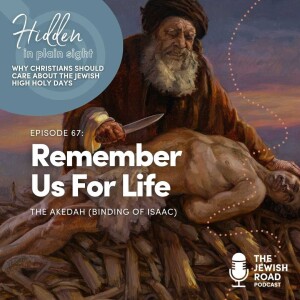
The human soul seems hardwired to long for atonement—a strong, sometimes desperate, desire for forgiveness and release. This is a sentiment that echoes across cultures and religious practices, revealing a shared yearning to be set right with God.
We find in the story of the Akedah a vivid representation of how far God was willing to go to grant us that atonement. "God will provide for himself the lamb for a burnt offering, my son," Abraham tells Isaac, echoing a promise fulfilled through Jesus (Genesis 22:8). Akedah literally means, “The Binding,” and recounts the story of Abraham taking his “one and only son” Isaac to the top of Moriah to sacrifice him.
In Jewish tradition, the Akedah resurfaces each year during Rosh Hashanah services, serving as a collective meditation on obedience, sacrifice, and divine intervention. The sound of the shofar, the ram's horn, harkens back to that moment when God provided a ram to replace Isaac. This narrative reverberates today as Jews consider God's provision and await the coming of the Messiah. Yet for many, the realization that the Messiah has already come remains an unopened gift.
As we read in Hebrews 11:19, Abraham "considered that God was able even to raise [Isaac] from the dead." This faith foreshadows the faith we're called to have in Jesus, Yeshua in Hebrew, as the ultimate sacrifice and the final unbinding of sin. Let's pray today for our Jewish brothers and sisters to recognize Yeshua as their atonement and their freedom from spiritual bondage.
1 years ago
I can’t count the number of times I’ve read this biblical account in Gen 22 and yet I learned things I never knew. Thank you for an excellent podcast!